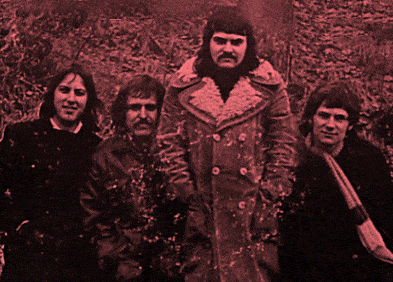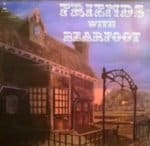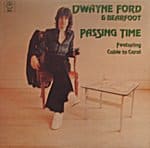 A short time later, Hawkins had the boys in Brantford, Ontario, playing a club upstairs while he was checking out Tin Pan Alley downstairs. They were playing to a packed house six nights a week. He recruited its singer/guitarist, Jim Atkinson, and bassist Terry Danko (brother of The Band‘s Rick Danko, another group that owed its start to Hawkins), and added them to his lineup, letting David Foster go in the process. But within a year, one by one, Danko, Atkinson, and Ford all flew the Hawk’s nest. Danko and Atkinson first began writing their own material on their own, and when Ford joined them, they spent a few months on the coffeehouse circuit as a trio, while they haggled with various record labels about a contract. On the collective recommendations from Pete Seeger, Ian Tyson, and Kris Kristofferson, Columbia Records’ Clive Davis signed them to a conditional deal. A few months later they hooked back up with Brockie and Hilton, went to Manta Studios in Toronto with producer Lee DeCarlo, and recorded one self-titled album under the name Atkinson Danko & Ford With Brockie and Hilton. “Right On” was released as a single b/w “Holy Holy Holy.” Intrigued, label reps agreed to further push the group, but only after a name change, and Bearfoot was born. The album was quickly re-mixed and re-packaged as Bearfoot’s debut, by which time Hilton had been replaced by new drummer Mal Turner. “Right On” was re-released, with a second version with “Mark Twain” on the b-side shipped for the US market. The band was steadily toiling away on the roads throughout Ontario, making a few stops out west and into the US. Columbia re-signed the band with a $15,000 bonus, and gave them $60,000 to go back into the studios. They released their sophomore album, FRIENDS WITH BEARFOOT in 1973, producing two singles to reasonably good results – “Only A Soldier” b/w “Life Goes Too Fast” and “Molly” b/w “St. Augustine.” But following a series of shows that took them into ’74, amid musical differences, the band quietly tried to call it quits. But when Ford tried to begin a solo career, label execs said it wouldn’t happen unless the name ‘Bearfoot’ remained in the marquee. This was all taking place just after the band was nominated for a Juno for Most Promising Group, losing out to BTO. Ford basically assembled a cast of session players that included Atkinson and Brockie, took them back to Manta Studios, and released the single “Passing Time” b/w “She Comes To Me” in late ’74. PASSING TIME became the title of the next album, in the stores early the next year, which produced a second single, “Cable To Carol.” Ford carried on the Bearfoot name until that fall, doing a few shows with a backup band that included Penti ‘Whitey’ Glan on percussion, bassist Chris Vickery, and drummer Marty Coudrey, but then pulled the plug on the band. Ford then created Dogs of War, releasing a self-titled album in 1977. He then began a successful solo career, as well as finding steady work around the Toronto studios as a session player and producer. Atkinson and Danko, who’d been living in Hollywood and working in films and session work, including Danko appearing in “The Buddy Holly Story” in 1978 with Gary Busey, returned to the Toronto area in 1985. They reformed Bearfoot with Danko handling vocals and with new drummer Gerry Baird. This version lasted a year and a half until the band was again dissolved. Danko and Atkinson hooked back up with Hawkins, where they stayed for the the better part of two years, long enough for a pair of world tours in ’86 and ’87. They both eventually left the nest for the final time, and continued on with solo careers.
|







